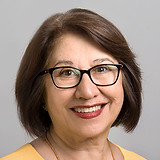Have a Question?
Call 1-800-960-1080 or
email Client Services
Faxing a Prescription?
The KSL Diagnostics fax number is (716) 559-1582
KSL Clinical Team

LONG SHEN, PhD
Laboratory Director
Dr. Shen earned his PhD in Biological Sciences from the University at Buffalo (UB) in 2003, followed by postdoctoral training at UB’s School of Medicine and Biomedical Sciences. He later joined UB's Department of Medicine as a research assistant professor, where he focused on investigating the early events that lead to the development of autoimmune diseases and lymphomas. In 2015, Dr. Shen transitioned into clinical laboratory work, with a special emphasis on developing novel laboratory-developed tests (LDTs) to meet clinical needs. In 2024, he received his Certificate of Qualification (CQ) as a lab director from the New York State Department of Health, with certifications in Diagnostic Immunology, Genetic Testing, Oncology (Molecular and Cellular Tumor Markers), and Virology.

PATRICIA A. MOWERY-RUSHTON, PhD, ABMGG
Director of Cytogenetics
Dr. Patricia A. Mowery-Rushton, a Diplomat of the American Board of Medical Genetics and Genomics in Clinical Cytogenetics, has more than 30 years of experience in cytogenetics and molecular medical genetics. Dr. Rushton received her PhD and clinical fellowship at the University of Pittsburgh, School of Medicine and Graduate School of Public Health. Before joining KSL, Dr. Rushton was the director of cytogenetics at Signature Genomics, a division of Perkin Elmer, from 2011 to 2014. She has also held leadership positions in cytogenetics at Genzyme Genetics/Integrated Genetics in Santa Fe, NM and Children’s Hospital of Pittsburgh. In her new role as laboratory director and site leader, Dr. Rushton will provide technical expertise in diagnostics and test development for KSL’s genetic testing services. This includes clinical oversight of the cytogenetic and FISH group, whose primary focus is on hematologic oncology with planned growth into solid tumor and prenatal genetics. In the past, Dr. Rushton’s work has focused on cytogenetics and molecular rearrangements in leukemia, and she will translate that experience into the expansion of the genetics program that KSL is developing. Dr. Rushton has a strong record of research and brings an extraordinary and diverse body of expertise and accomplishments to KSL. As Dr Rushton states “One of my goals is to bring improved client contact to the genetics division, and to ensure that appropriate understanding of what the testing information can provide the physician. I believe and strive to establish a partnership with the pathologists and physicians in managing patient care”.

THOMAS C. SHANAHAN, PhD, ABMLI
Consulting Director, Transplant Immunology & Immunogenetics
Dr. Shanahan received his doctorate degree in immunology from the Temple University School of Medicine in Philadelphia, PA, and trained as a post-doctoral fellow in clinical laboratory immunology at the McGill University Royal Victoria Hospital in Montreal, PQ. He is certified by the American Board of Medical Laboratory Immunologists. He has directed transplant immunology and HLA laboratories at the Erie County Medical Center, Strong Memorial Hospital, Buffalo General Hospital, Upstate New York Transplant Services, and Immco Diagnostics, and has held faculty appointments with the University of Buffalo and University of Rochester Medical Schools.

LALARUKH K. AFTAB, MD
Section Director of Mycology
D
KSL Management Team

KEVIN LAWSON
Partner
Kevin is an accomplished biotechnology executive with formidable experience identifying and building value in promising new technologies through collaborative licensing and internal basic research. Working closely with regulatory authorities at all levels: departments of health, FDA and international bodies, he has driven development, regulatory clearance and commercialization of numerous novel reference laboratory tests and IVDs in the US and rest of world. He is responsible for validation and approval of many LDTs and 510k of more than 50 assays and medical devices.

LAKSHMANAN SURESH, DDS, MS, PhD
Partner
Dr. Suresh is a Clinical Professor at the State University of New York at Buffalo. He has over 25 years of experience in pathology and laboratory medicine. He is board-certified in Oral and Maxillofacial Pathology by the American Board of Oral and Maxillofacial Pathology. He also has board certification from American Board of Medical Laboratory Immunology. He has authored numerous publications and book chapters, holds several patents and maintains various research collaborations with investigators throughout the World.

LONG SHEN, PhD
Partner
Dr. Shen is a founding partner of KSL Biomedical, with over 20 years of experience in translational biomedical research, underpinned by a solid scientific and medical education from China and the USA. Dr. Shen has extensive expertise in immunology, molecular biology, and biochemistry, with a deep knowledge of human and murine autoimmune diseases and associated B-cell lymphomas. He is an expert in omics-based biomarker discovery and both in vitro and in vivo assay development. His work has significantly advanced the early diagnosis of autoimmune diseases, contributing to the development of new treatment options for patients. Dr. Shen has authored over 30 peer-reviewed publications in high-impact journals and holds multiple patents related to his research.
